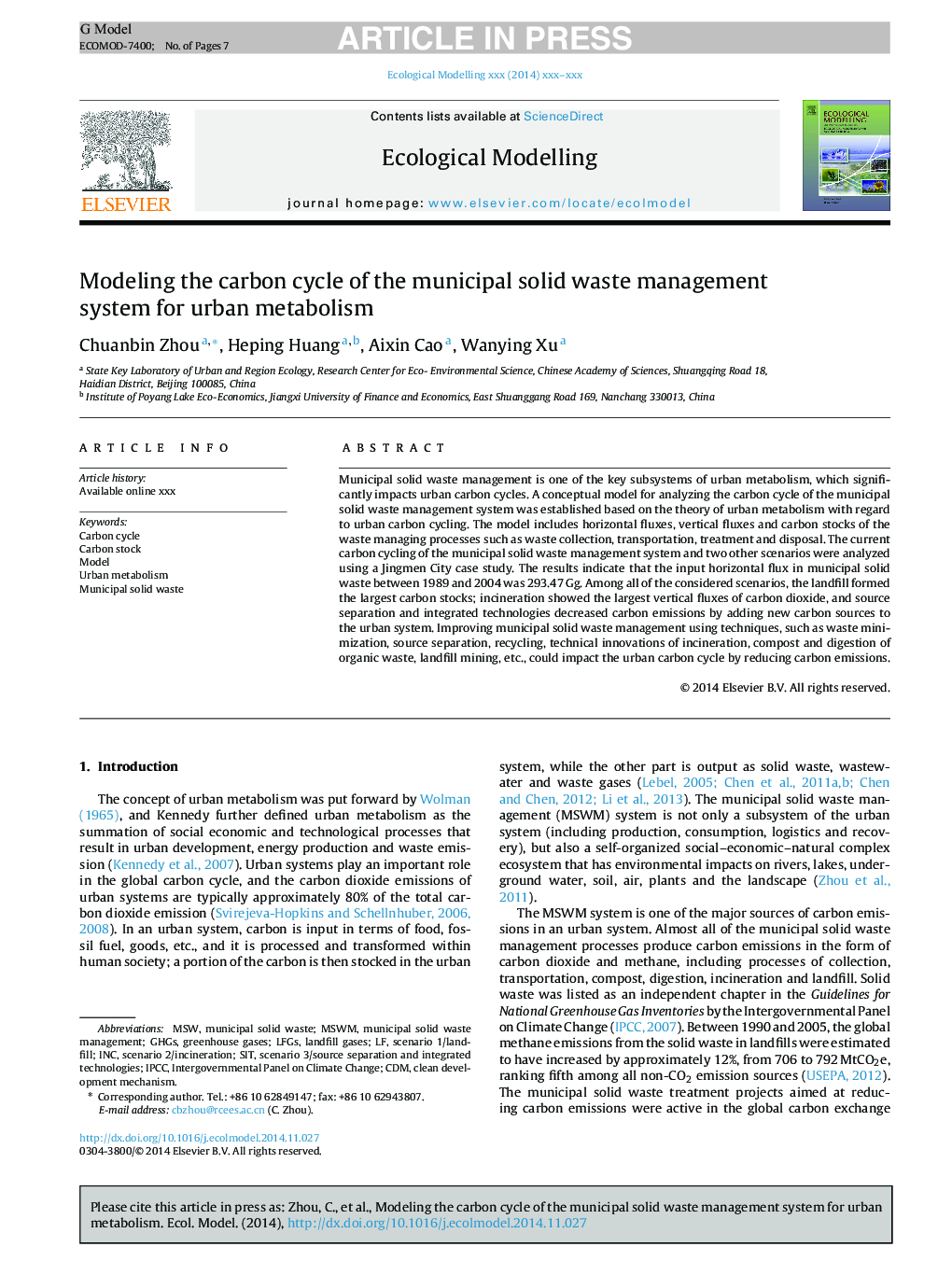| Article ID | Journal | Published Year | Pages | File Type |
|---|---|---|---|---|
| 6296400 | Ecological Modelling | 2015 | 7 Pages |
Abstract
Municipal solid waste management is one of the key subsystems of urban metabolism, which significantly impacts urban carbon cycles. A conceptual model for analyzing the carbon cycle of the municipal solid waste management system was established based on the theory of urban metabolism with regard to urban carbon cycling. The model includes horizontal fluxes, vertical fluxes and carbon stocks of the waste managing processes such as waste collection, transportation, treatment and disposal. The current carbon cycling of the municipal solid waste management system and two other scenarios were analyzed using a Jingmen City case study. The results indicate that the input horizontal flux in municipal solid waste between 1989 and 2004 was 293.47Â Gg. Among all of the considered scenarios, the landfill formed the largest carbon stocks; incineration showed the largest vertical fluxes of carbon dioxide, and source separation and integrated technologies decreased carbon emissions by adding new carbon sources to the urban system. Improving municipal solid waste management using techniques, such as waste minimization, source separation, recycling, technical innovations of incineration, compost and digestion of organic waste, landfill mining, etc., could impact the urban carbon cycle by reducing carbon emissions.
Keywords
Related Topics
Life Sciences
Agricultural and Biological Sciences
Ecology, Evolution, Behavior and Systematics
Authors
Chuanbin Zhou, Heping Huang, Aixin Cao, Wanying Xu,
